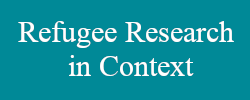European Union Capacity Building Mission in Niger (EUCAP) was launched in 2012 as a joint mission to aid economic development in the region while simultaneously serving the security interests of the European Union by deterring irregular migration through the region. Special focus was given to the region as Trans-Saharan routes originating in the Sahel were perceived to be the main gateway to migrants seeking to embark across the Mediterranean into Europe. The premise contains several flawed assumptions that will be covered in this issue. Notably, the assumption that the majority of migration from Western Africa across the Sahara is destined for Europe, the role of economic development in addressing push factors, as well as the assumption that strengthening conventional border controls and cracking down on smuggling will deter irregular migration. This Issue is broken down into three points of entry, each of which outline important aspects to understanding the complex historical, political, social, and economic context that revolved around irregular migration through the Sahel.
European Union Capacity Building Mission in Niger (EUCAP) was launched in 2012 as a joint mission to aid economic development in the region while simultaneously serving the security interests of the European Union by deterring irregular migration through the region. Special focus was given to the region as Trans-Saharan routes originating in the Sahel were perceived to be the main gateway to migrants seeking to embark across the Mediterranean into Europe. The premise contains several flawed assumptions that will be covered in this issue. Notably, the assumption that the majority of migration from Western Africa across the Sahara is destined for Europe, the role of economic development in addressing push factors, as well as the assumption that strengthening conventional border controls and cracking down on smuggling will deter irregular migration. This Issue is broken down into three points of entry, each of which outline important aspects to understanding the complex historical, political, social, and economic context that revolved around irregular migration through the Sahel.
Key Concepts
Readmission agreements : “Readmission Agreements are part of the EU’s broader strategy for combating illegal immigration, adopted by the European Council in Tampere, Laeken and Seville. Such agreements involve reciprocal undertakings by the European Union and third-country partners to co-operate over the return of illegal residents to their country of origin or transit. The Commission is seeking to integrate migration issues into the Union’s overall relations with third countries.”
– European Commission
https://ec.europa.eu/commission/presscorner/detail/en/MEMO_05_351
Non-Refoulement : “Under international human rights law, the principle of non-refoulement guarantees that no one should be returned to a country where they would face torture, cruel, inhuman or degrading treatment or punishment and other irreparable harm. This principle applies to all migrants at all times, irrespective of migration status.“
– Office of the United Nations High Commissioner for Human Rights
https://www.ohchr.org/Documents/Issues/Migration/GlobalCompactMigration/ThePrincipleNon-RefoulementUnderInternationalHumanRightsLaw.pdf
Human Smuggling vs Human Trafficking : “Human trafficking involves exploiting men, women, or children for the purposes of forced labor or commercial sexual exploitation. Human smuggling involves the provision of a service—typically, transportation or fraudulent documents—to an individual who voluntarily seeks to gain illegal entry into a foreign country.”
– U.S Immigration and Customs Enforcement
https://www.ice.gov/sites/default/files/documents/Report/2017/CSReport-13-1.pdf





